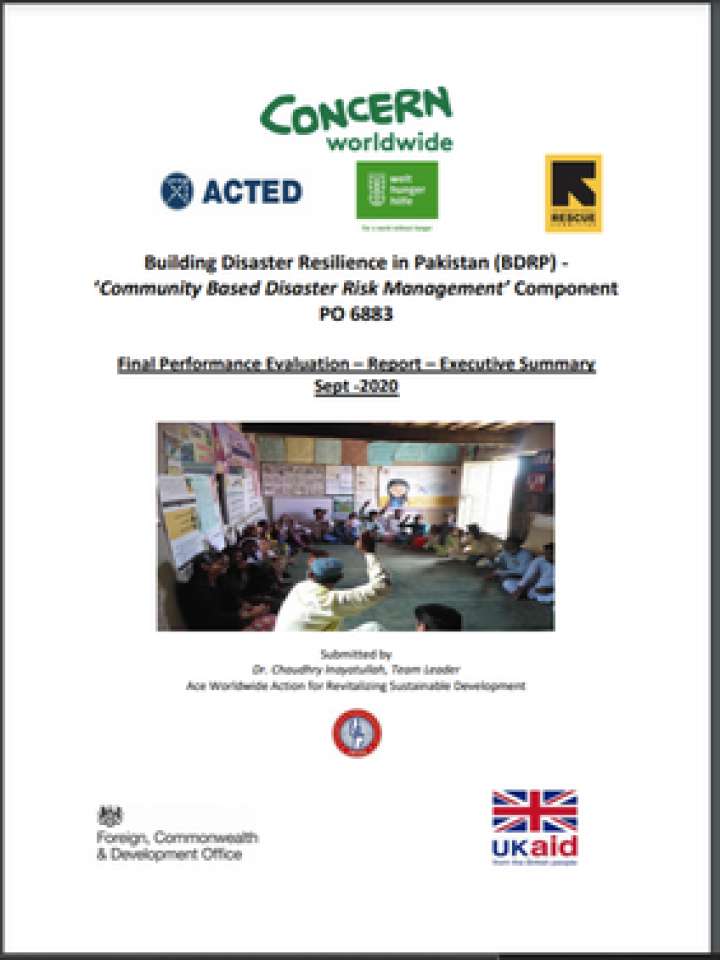Building disaster resilience in Pakistan final evaluation 2020 - executive summary
This publication is a performance evaluation of the Building Disaster Resilience in Pakistan (BDRP) program. Poverty in Pakistan is concentrated in rural areas where 70% of the population lives. Based on World Bank’s poverty headcount analysis, at US$1.25/day income definition, about 21% of Pakistan’s population is below the poverty line. The BDRP programme was developed to respond to these challenges and had a 24 month programme period. The final performance evaluation was commissioned by Concern in the last week of August 2020. The evaluation included a review of relevant programme documents, analysis of baseline and end-line data on the Household Resilience Index and consultations with beneficiary communities and staff of relevant government officials in each district.
The evaluation used the Organisation for Economic Co-operation and Development–Development Assistance Committee (OECD-DAC) Principles for evaluating the programme. The evaluation found that the programme accomplished its target of enhancing the resilience of communities to cope with disasters. It found that 41% of the programme targeted population improved their Household Resilience Index (HRI) score and shifted from low to higher categories of HRI. A rating of outstanding performance (4) was also awarded for the programme's effectiveness. The evaluation found that the programme was instrumental in building community resilience.
Explore further
